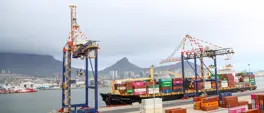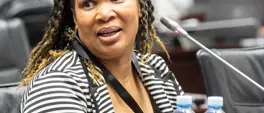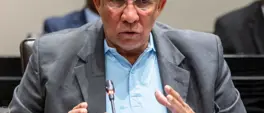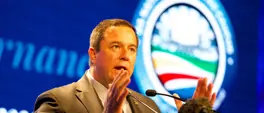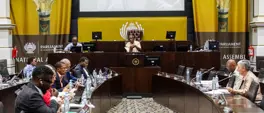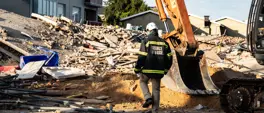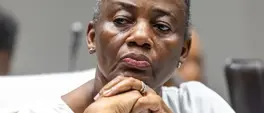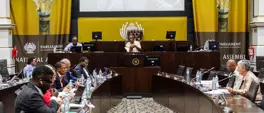'Crime syndicates thrive when the state is absent' – a lesson from Medellín, Colombia
Barbara Friedman
22 August 2024 | 12:23South Africa is in the grip of crime syndicates placing a stranglehold on local businesses and even private individuals.
Criminal syndicates across South Africa are extorting businesses for substantial monthly "protection fees," driving some to shut their doors.
How can we fight back against extortionists?
Lester Kiewit speaks to Santiago Uribe Rocha, the Chief Resilience Officer of Medellín in Colombia.
Once infamous as the most violent city in the world, Medellín has undergone a remarkable transformation in a short time. Discover how they turned the tide and what South Africa might learn from their experience.
Rocha shares key insights.
"We recognised that violence in our case was not the major issue, but it was the manifestation of a major, major problem, which was inequalities."
Santiago Uribe Rocha, Chief Resilience Officer of Medellín
He asserts that inequality stems from a fundamental structural issue: the absence of a functioning state.
"Once you have neighbourhoods and territories, rural areas go down, without the presence of the State, somebody will fill that gap, and normally that 'somebody' are criminal organisations."
Santiago Uribe Rocha, Chief Resilience Officer of Medellín
He explains that these syndicates view the 'gaps' as prime business opportunities.
The syndicates present themselves as new players positioned to 'replace' the state and deliver much-needed services.
One key example is security services. He says organised crime offers security services with the principle that 'if you pay we provide you safety and security.'
But this goes beyond this one exchange, he notes.
"Once they start, they try to gain more and more space to replace all the services of the state, including replacing services of private enterprises."
Santiago Uribe Rocha, Chief Resilience Officer of Medellín
In 1991, then president of Colombia César Gaviria, known for his conflict mediation, appointed a 'Peace' Minister.
"It was a very strategic move...and acknowledged that national government was not able to help us. They did not have the resources and the power."
Santiago Uribe Rocha, Chief Resilience Officer of Medellín
It shifted the focus and required all institutions to come together to be part of the solution rather than the problem, he adds.
And the same applies to the South African scenario.
"At some point the South Africa society needs to recognise that they are part of the ecosystem as a problem, but they could be part of the solution by helping national and local government to identify and implement creative solutions ."
Santiago Uribe Rocha, Chief Resilience Officer of Medellín
National and local governments will not solve South Africa's crime issue alone, he insists.
"It will require the power of government, civil society, entrepreneurs, universities and citizens together to join forces to defeat organised crime - but also to understand crime as an ecosystem beyond violence and as a result of inequalities."
Santiago Uribe Rocha, Chief Resilience Officer of Medellín
What did these spheres of society in Medellin do practically to get a grip on organised crime?
He says government created a steering committee with all levels of civil society on violence and crime prevention, named the Security Committee of the city.
"It was having meetings weekly...thinking how to deal with violence....on the other side you need a strong security secretary...a civilian to coordinate all sectors of society."
Santiago Uribe Rocha, Chief Resilience Officer of Medellín
What followed was the creation and implementation of a Security and Violence Prevention Plan that is reviewed every four years by the committee.
"Government cannot be the only actor to fight violence and crime...but must include social integration, social inclusion as a major aspect of violence prevention."
Santiago Uribe Rocha, Chief Resilience Officer of Medellín
Get the whole picture 💡
Take a look at the topic timeline for all related articles.


